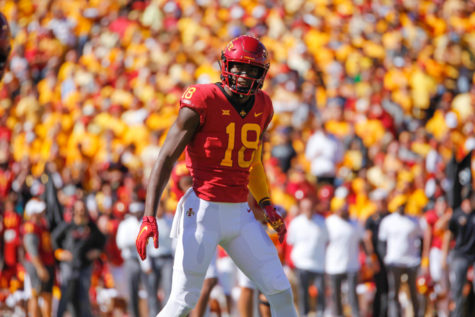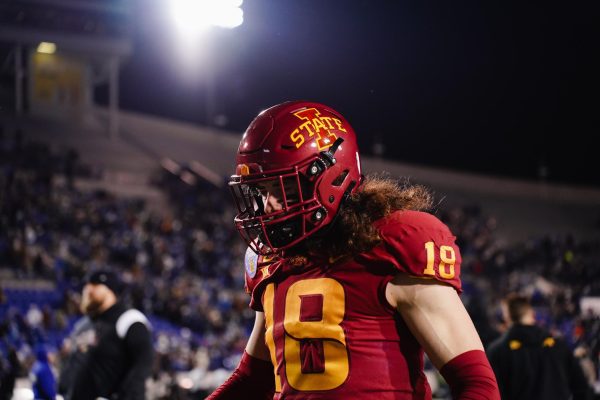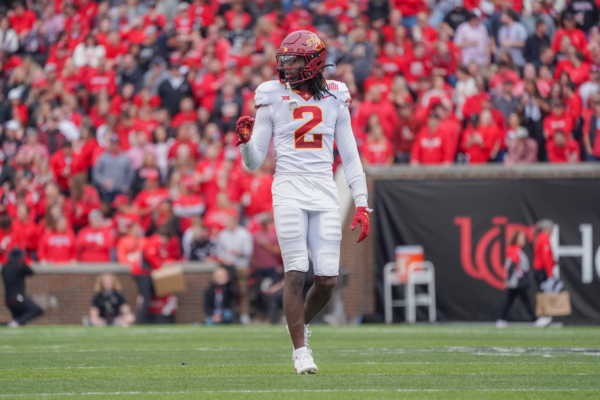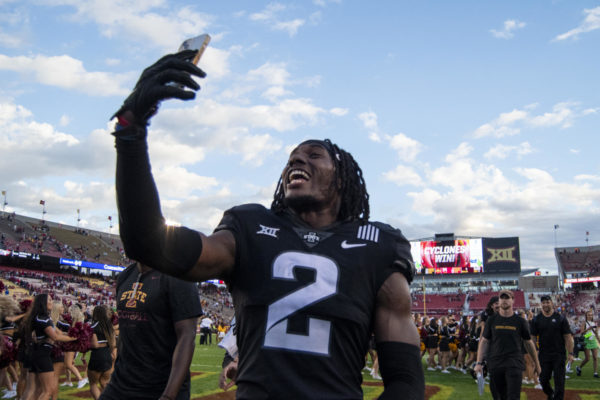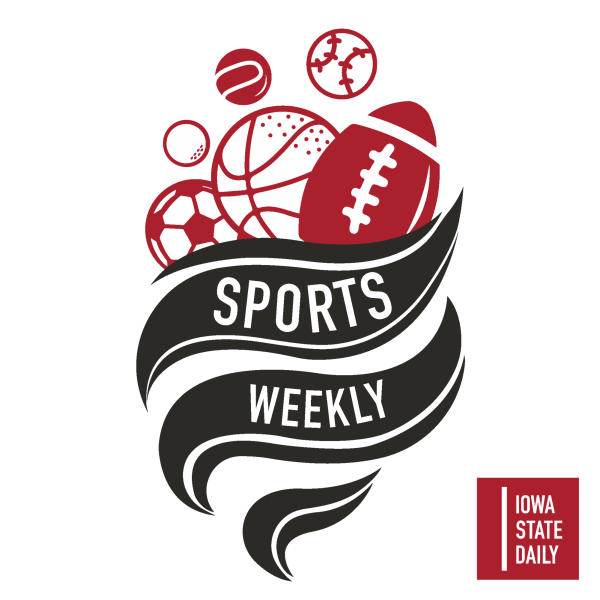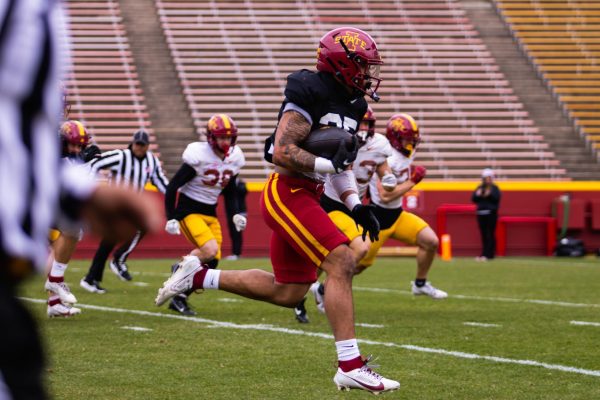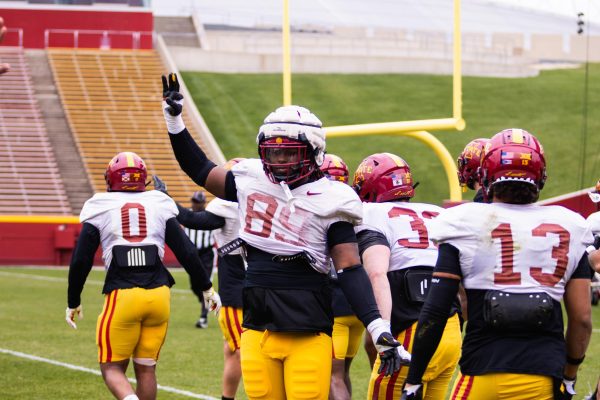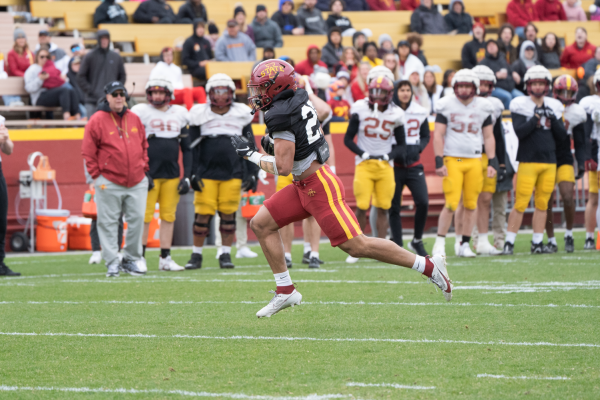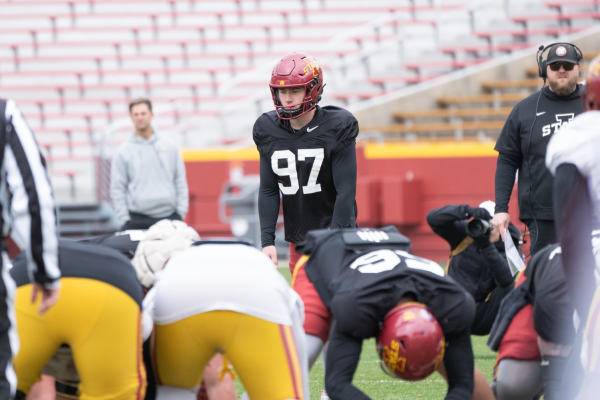FOOTBALL: Righting the ship
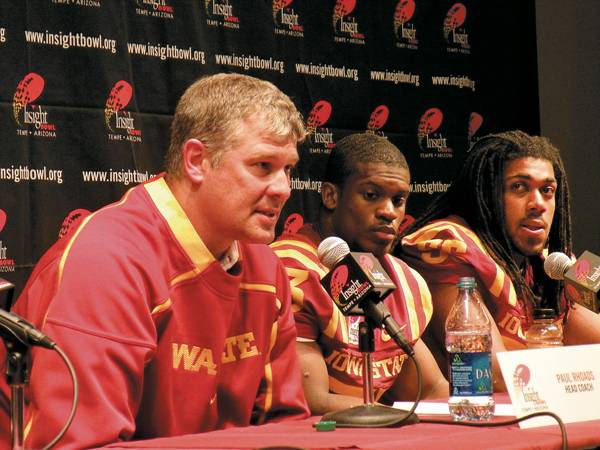
Coach Paul Rhoads discusses the victory after the Cyclones won the Insight Bowl on Dec. 31, 2010 for the first time since 2004.
January 13, 2010
Editor’s note:
The Daily recently sat down with ISU football coach Paul Rhoads to look back on 2009 and into the future of the ISU program. This is part one of a two-part series featuring Rhoads and his success. Take a look at tomorrow’s paper to see a view of 2010.
By now we’ve all heard the story.
The hero rides back into his hometown and rescues a sinking ship whose disloyal captain abandoned for a helm he perceived to be more attractive.
With hard work, some emotion and a few breaks along the way, Paul Rhoads turned the ISU football program around and took them to the promised land — the Cyclones’ first bowl win since 2004.
But we already knew that.
One question remains two short weeks after the culmination of this near fairy tale: How?
“It was a matter of setting the bar high,” Rhoads said. “Because we rarely exceed our expectations, we wanted to make sure we set them high.”
Rhoads’ expectation, as with many other college football coaches, is to be playing in — and winning — a bowl game at the end of each season.
“That’s why you play college football,” Rhoads said. “To be playing in late December and early January and enjoy the success that goes with a bowl season.”
The team he inherited, however, went just 2–10 the prior season, and had combined for only nine wins in its previous three seasons.
The coaching staff’s goals weren’t based around a specific number of wins, either.
Rhoads said that, had his coaching staff set a goal in terms of number of wins, it “would’ve immediately set a ceiling” on the team, not allowing them to fulfill its full potential.
But expecting a bowl win wasn’t enough.
He said the team buying into the plans laid out by its coaches was key to living up to the high expectations set for it from day one.
“Trusting to [lift weights] this way, to run this way, to change direction this way, and to working just as hard to execute what they asked them to do proved fruitful for us, as far as our development goes,” said Rhoads, who has been in coaching for 21 years.
For the senior class — a group that featured center Reggie Stephens and safety James Smith — Rhoads would be the third head coach they would play for. However, Rhoads said, the group led the charge to buy in to their newest coach’s big-picture plan.
“For them to embrace, follow and trust at the level they did is the reason we had the success we did.”
He said the more experienced players led each day on the field during drills and workouts.
“[The seniors] came to work every day,” Rhoads said, “and it doesn’t matter if you’re a true leader, I think, as a senior, you’re sort of anointed that way just because of age.”
But even with such high expectations and the players buying in so wholeheartedly … it wasn’t enough.
The team’s work ethic, led by the seniors and captains, was also a major reason for its success.
As Rhoads said to his team in the locker room after the Insight Bowl victory over Minnesota: “We do things the right way, don’t we? Day after day, in situation after situation, you do things the right way.”
In his post-game talk with the players, Rhoads recalled that the team had only had to redo a sprint because a person didn’t touch the right line one time all season.
Avoiding frustration is something Rhoads said is vital to success, both as a coach and a player.
“Just because I don’t execute this block or route or this technique as a defensive end rushing the passer the first time or the second time or the third time,” Rhoads said, “doesn’t mean I’m not going to get it. When you become frustrated that you’re not accomplishing it, then you quit moving forward.”
To reach and win in a postseason game, Rhoads said preparation was vital.
The team’s work for the 2009 season began almost immediately after its new leader was hired. Players worked out with strength and conditioning coordinators Yancy McKnight and Clayton Oyster to become a more physical football team.
“They had a hunger about them. Young men still desire discipline, and they still desire structure, and we provided that for them,” Rhoads said. “I have never been around a team that has prepared as hard and as well as this football team.”
But all of the expectation and preparation in the world wouldn’t have been enough without confidence — and it started with the coach.
“It wasn’t that I had the confidence that we could get it done, it was my job to instill that confidence so we could get it done,” Rhoads said.
As spring practices began and continued into fall camp, Rhoads said the successes his players were seeing in practice began to increase their confidence in what they were doing every day. That “snowballing” of confidence, as Rhoads called it, started early and brought the players together and kept them moving forward, toward the goal.
Rhoads also said the expectation that he set on his team in January after he was hired spurned the team’s confidence, and the coaching staff used the team’s work ethic and preparation in practice to give them the confidence they needed, going into Saturdays.
“We went into all 13 games that we played with the thought that we could win, had we gone out and executed the game plan to the highest of our ability,” Rhoads said.
He sat behind a large desk that’s surface was strewn with papers and notes, and his voice blasted through the spacious office with every answer that he gave.
His attire was simple Tuesday morning, as it normally is, and he stared over his glasses, pushed to the bottom of the bridge of his nose, intently listening to each question and idea posed, eager to tell the story of his team’s successes in 2009.
When Paul Rhoads arrived on campus in December 2008, he told the Cyclones’ faithful fans that his team would play smart, play physically, and that it would bring passion back to the Cyclone Nation. For the most part, Rhoads was pleased with how his team followed through on its coach’s promises.
However, Rhoads said that as a coach, he must be wary of becoming satisfied with the performances of his team into next season and beyond.
“Were we smart? … Were we physical? Yes, overall,” he said. “Are there other levels of physicality and smartness that we can achieve? Most definitely. And we’ve got to keep moving to that direction — of onward and upward — if we’re going to achieve better things in the future.”
Onward and upward, toward better things in the future.
“I talked to our football team last night about the 2010 season and beyond, and we want to build championships,” Rhoads said. “Preparation begins now.”







